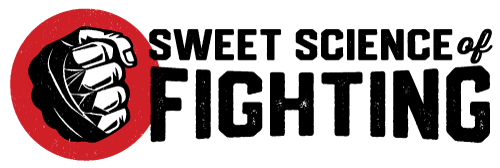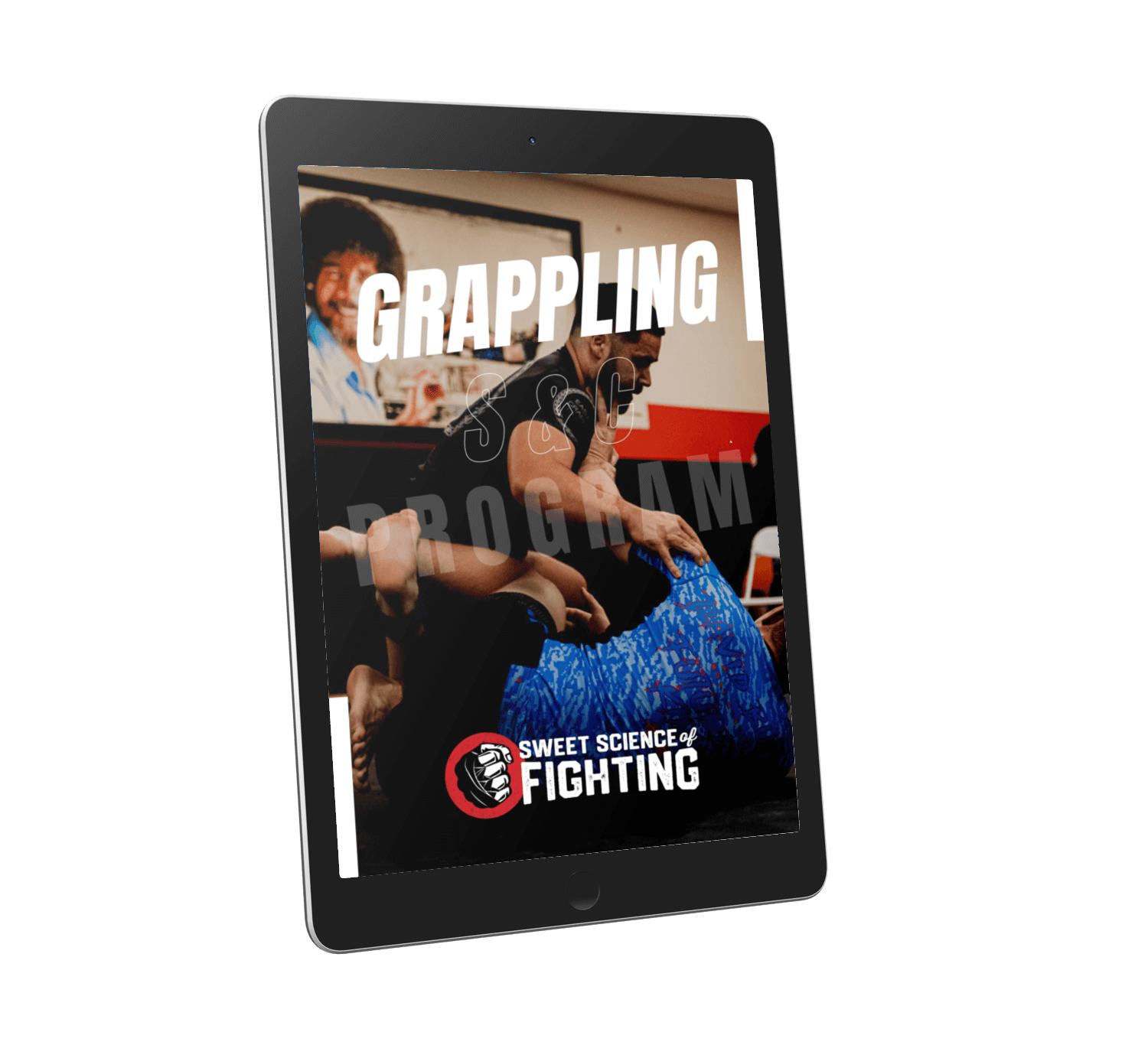So, you’ve just started training BJJ again after a long layoff. Or you’re brand new to the martial art. Or maybe, you’ve just had a session from hell that’s been harder than anything you’ve done before.
You wake up the next day and can barely roll out of bed. We’ve all been there. I remember returning to BJJ after a year off and rolling hard the first day. Worst mistake ever that I won’t make again with how sore my shoulder was afterward.
Unfortunately, even if you start light, some soreness is inevitable. And no matter how conditioned you are, some sessions will just leave you sore. So what can we do to mitigate the soreness from BJJ?
How To Reduce Soreness After BJJ

Movement Is Medicine
This has been my philosophy for many years when it comes to rehabbing injuries and mitigating general soreness. Have you ever trained one day, woken up sore from the training, and decided to just lay on the couch and do nothing for the day?
You get up hours later and are sorer than when you woke up!
Now, this doesn't mean going for a full-blown workout. Movement is about being active. It could be walking, swimming, a Yoga flow, or even a light high rep gym training session.
By being active, you’re promoting blood flow to the working muscles which delivers essential nutrients for recovery.
Massage
While the research surrounding the efficacy of massage for promoting recovery isn’t very positive [1], it has been around and used extensively for centuries. However, some research has suggested that massage may reduce delayed onset muscle soreness [2]. Also, name a time you had a massage and didn’t feel better afterward!
But you must be aware that if you haven’t had a massage in a very long time or ever, you may end up feeling sorer the next day. Regular massage, if you can afford it, is better than getting a one-off massage when you are sore.
Self-Massage
Don’t want to pay for a massage? You can do it yourself! While not as effective, using some kind of foam roller, or massage gun may help you to feel more recovered and less sore. Again, the research behind these modalities is lacking when looking at reducing muscle soreness and promoting recovery.
5 Step Blueprint To Build A BJJ Strength Workout To Demolish Your Opposition
Learn how to plan your strength training to maximize transfer to the mats.
For example, one study found foam rolling to not affect the recovery of force development but the perception of muscle soreness was reduced [3]. Similar results were found in soccer players when foam rolling after a session reducing the perception of muscle soreness [4].
Overall, foam rolling and self-massage is a cheap alternative to reduce any muscle pain you may have allowing you to get back to BJJ sooner.
Avoid Anti-Inflammatories
The inflammatory response when you are sore is a signal to your body for it to adapt to the imposing stressors. By removing this inflammation response with artificial means, then you are removing your body’s ability to adapt to the stress.
In the long term, this can be detrimental to your ability to handle high workloads of BJJ and training in general as your body is not equipped to handle the workload without artificial means of blunting the inflammatory response.
Anti-inflammatories don’t just come in pill form. The use of ice baths falls under this category. However, there are certain periods of the year you may consider using an ice bath chronically which you can read about in my scientific breakdown.
How Can You Prevent Soreness From BJJ?

Train BJJ Regularly
Regular BJJ training is the antidote to chronic BJJ soreness. Regular training allows your body to adapt to the awkward movements and hard rolls you may go through each week.
That doesn’t mean you are fully protected against awkward neck cranks and other odd things that may happen. But regular training will ensure you don’t have absolute crippling muscle pain after every single session.
Strength Train Regularly
Regular strength training for BJJ will keep you healthy and robust to injury. Strengthening the muscles and joints to take a beating will reduce overall soreness. Further, raising the ceiling for the maximum amount of force you can produce means the movements you perform when rolling will become easier.
As a crude example, if you can bicep curl 45 lbs for 1 rep, while another person can bicep curl 90 lbs for 1 rep, it takes the 90 lb bicep curler less force to maintain a certain level of effort compared to the 45 lb curler.
This means they will likely be less sore after BJJ and not fatigue as quickly. While general strength training programs can be good to perform in the beginning, using a BJJ-specific strength training program like Dominate The Mats will take your BJJ to the next level.
Train Your Neck
Neck training is your best friend as a BJJ practitioner. If you are not training your neck, you are doing yourself a disservice. A strong neck will allow you to withstand more punishment and help you finish certain submissions such as head and arm chokes.
My go-to neck training device is the Iron Neck. It allows you to train all 360° range of motion and in my experience, instantly relieves neck pain and increases the mobility of your neck.
Further, getting it at a 10% discount saves you a chunk of cash!
Use code "SSOF10" for a 10% discount
Check out my in-depth model comparison if you’re not sure which Iron Neck to buy. Don’t want to buy any new equipment? No problem! I have a whole series on training your neck at home with no equipment or with only dumbbells.
Not all neck pain can be fixed by some simple strength exercises. If you’re not sure, see my article on neck pain and BJJ to see when you should consult a professional.
Tap Early
Don't try and fight through submissions when you know you're beaten or will put yourself in a compromising position to get out. Instinctively, you know when this is likely to happen.
A simple way to prolong your BJJ career is to know when to tap, and to stay relaxed so you’re not forcing your way out of submissions potentially injuring yourself.
Should You Train BJJ When Sore?
If you have localized muscle soreness, then you have no problem training BJJ when sore. However, if soreness is joint-related or more serious, then it would be wise to seek medical advice before stepping back on the mats.
The last thing you want to do is seriously injure yourself keeping you off the mats for months or years.
References
1. Poppendieck, W., Wegmann, M., Ferrauti, A., Kellmann, M., Pfeiffer, M., & Meyer, T. (2016). Massage and performance recovery: a meta-analytical review. Sports medicine, 46(2), 183-204.
2. SPORTS, J. (2005). Sports massage a comprehensive review. Journal of Sports Medicine and Physical Fitness, 45, 370-80.
3. Casanova, N., Reis, J. F., Vaz, J. R., Machado, R., Mendes, B., Button, D. C., ... & Freitas, S. R. (2018). Effects of roller massager on muscle recovery after exercise-induced muscle damage. Journal of sports sciences, 36(1), 56-63.
4. Rey, E., Padrón-Cabo, A., Costa, P. B., & Barcala-Furelos, R. (2019). Effects of foam rolling as a recovery tool in professional soccer players. The Journal of Strength & Conditioning Research, 33(8), 2194-2201.


